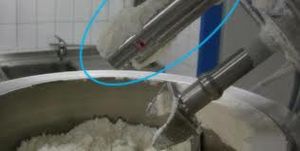Granulating Courses
Granulation and compression are two very important processes that are carried out extensively by most pharmaceutical companies. However, the theory of granulation is little understood and the selection of a particular machine and granulation method, is often done on the basis of tradition, rather than by using strict scientific or cost-benefit criteria. The basic techniques have changed dramatically in recent years and granulation for controlled release, extrusion, spheronisation, fluidisation techniques, spray drying, melt extrusion, oral dispersion technology and roller compaction are new technologies that are increasingly being used in modern pharmaceutical production, which exhibit many advantages over previously available techniques. As with granulation, compression is also little understood and why some materials or formulations will compress well whilst others compact with difficulty, is slowly being elucidated.
Granulating Course will examine current granulation and compression theory and practice. Emphasis will be made as to how this theory and practice relates to current pharmaceutical development and production, with special reference to the machinery used. Scale-Up, Transfer Technology and SUPAC will also be addressed. A particular feature of the course will be the workshop on new melt extrusion technology.
Objectives
The aims of the course are to provide a comprehensive and sound understanding of the theory and practice of tablet granulation and compression and to appreciate the various processes batch or continuous, that are available. The importance of the granulation process in producing good quality tablets will be emphasised. The modern techniques of extrusion, spheronisation, powder layering, roller compaction, fluid-bed processing, spray drying, melt extrusion, oral dispersion technology and tablet compression will be covered. The Course will be taught primarily by industrial scientists who have been closely involved with investigating these granulation and compression processes and thus a pragmatic approach will be adopted throughout.
Who Should Attend
All who are working in pharmaceutical research, formulation, development, production, QA/QC and registration who require a sound understanding of the various granulation and compression methods and who wish to appreciate some of the advantages of the newer methods of granulation, spheronisation, roller compaction, layering, melt extrusion and compression that are now available
